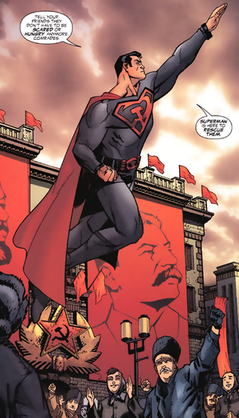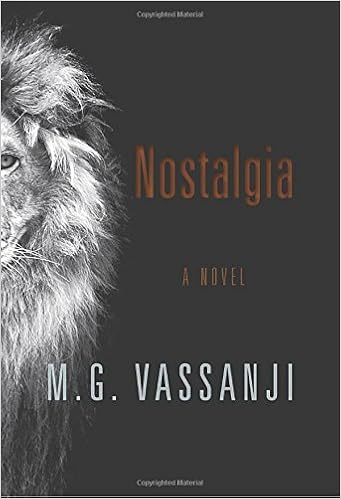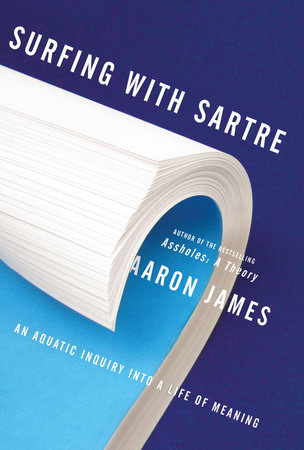Periodically when I review stuff on here I wonder why I wait until I've finished consuming whatever it is before writing anything. Halfway through something I'll think "if I wrote stuff down now or took notes it would make things easier," or when I've finished writing something I'll hit submit and five minutes later I'll remember something I wanted to say and bemoan my idiocy for not remembering something that was so crucial to me at the time.
Last summer I nearly made it all the way through all of George Orwell's books. I'm sure at some point within a review of one of those was a complaint about the term 'Orwellian,' a descriptor applied entirely to Nineteen Eighty Four and none of his previous life or writing. There's an irony he would probably have enjoyed in the people who throw that term around the most understanding it the least, and I personally would suggest with some confidence that most people who bemoan pervasive Orwellian influences on modern life have never read anything he's ever written. You could argue some relevance in the term to his previous writing as Nineteen Eighty Four is arguably a logical conclusion to what came before it, that every injustice Orwell saw throughout the world was condensed and exposed in a single volume, but again, I doubt most people who use the term would be able to appreciate that when they do.
The first actual book Orwell had published was Down and Out in Paris and London, an uncomfortably voyeuristic view of life working in a terrible hotel in Paris and then tramping around London. While vivid and terrible in its descriptions there was an air of inauthenticity I couldn't get over when I read it. It sounded too much like the person experiencing this was trying to convince himself as much as the reader that he was like the people he was encountering. That he couldn't avoid the sensation that he was an outsider, no matter how much he tried. Of course, this was some amount of years before he came around to writing The Road to Wigan Pier, specially commissioned and documented much more thoroughly as a straight-forward piece of documentation of reality. There are frequent apologies for Orwell's appearance and accent which probably serves to make the whole thing much more acceptable to me than Down and Out, and the experience (and subsequent world-weariness acquired therein) accrued in the time between these publications helps create a much more engaging read.
The problem with The Road to Wigan Pier, and this is where my first paragraph will become relevant, is in its structure. Like Down and Out, it's in two parts. The first part is the road to Wigan, as Orwell recounts a journey to the industrial north and the mining towns there. This section is magnificent. Well, magnificently written, the things it describes are horrific. This isn't an area in the direct aftermath of war or some catastrophic society-destroying event, this is normal life. Of endless families crammed into housing literally falling apart before your eyes, of people scrambling over dirt piles to find lumps of coal as a means of a living, of people being glad for their teeth falling out because it causes you less hassle, of dirt and filth and squalor ingrained in every part of a person's psyche and physical being. And it's normal. I think that's what's most harrowing about the people Orwell writes about meeting. They all accept this. There's naturally a pride to the coal miners he meets as you would expect in any profession, particularly one which is so impressive from a physical standpoint, but all of the conditions and things which go along with that are unfathomable to me reading it now, and they are in a sense to Orwell, but not really. He writes of coal being a sort of ubiquity, something which is there and is perpetual, that we won't be without because we can't be without. Yet at the other end of that spectrum there's no real thought ever given to how it reaches us, the people who use it.
The descriptions of the mines themselves are as shocking as anything else. Describing how he, a man six foot two, struggled after going down in the lift into a tiny opening before walking at a half crouch, crawling in places, to actually get to the coal seam where the mining was taking place, is particularly evocative and he's much better at conveying the closeness of his surroundings than he was in Down and Out. The idea of doing that every day is as alien to him as it is to me. Maybe anyone could have conveyed that sensation, maybe it's because the things described are as shocking to him as they are to me, either way, the end result is the same.
The issue with the book as a whole arises when he moves above ground and stops talking about actual people, which comes far too soon. While I enjoy Orwell's writing about socialism and social issues in isolation from a historical perspective, attaching them to the first half of this book acts to overshadow the shocking things he describes in the mines and lessens their impact purely through boredom if nothing else. I might be sympathetic to his general worldview, but here it has a sense of being meandering, of not really knowing what point he's trying to make and you end up switching off as you read it. Ironically you want to go back to the conditions he's advocating for the improvement of.
One thing which the second part of the book, - and other writing of Orwell's is guilty of this, though since I'll never have the attention span to take in loads of his essays at once I'll have to expand on this when I re-read Coming Up For Air - does is betray an almost unconscious hypocrisy of Orwell which is still arguably present in the British public today, although from different perspectives. Orwell writes frequently - directly and indirectly - about the change in Britain from his childhood to the present day. From the sense of wholesome farmlife where there was an air of self-sufficiency and above all else decency about the way of life. He seems appalled by the sense that there are people who have to exert dirty physical labour to earn a living, apparently oblivious to the realities that farming and a country centred around agriculture and subsistence farming would entail given the expanding population. There's a bit of stuff in Wigan Pier about mechanisation and the future of human labour in a socialist Britain but honestly, I don't think you can read it with any seriousness given this was written in the thirties and Orwell was dead by the fifties. It's too of its time to be taken wholly as meaning anything in the present.
Is that a problem? Does my distaste of the term Orwellian mean I consider everything he wrote in terms of its influence on the present day? I'm not sure. I think there's a naivety in some of the things he writes comparing his childish, idealised view of what the country should be compared to the actual reality of the times he was writing in (even excepting the war to come, which he viewed with a depressing inevitability the closer it got), but I don't think this lessens the legitimacy of the things he wrote specifically about the times he was writing about. I guess I'm just annoyed when people who don't have a clue what they're talking about pull things out of literature and misapply them to support their own nonsense.
My copy of The Road to Wigan Pier isn't actually the book itself, it's contained in a collection of other related essays titled 'Orwell's England,' some of which I've read and some of which I've read elsewhere. There's a quote on the back which says "No one wrote about the English character better than Orwell," which I think is fair. I think his views about his country and what's best for it were admirable and grounded in a lot of legitimate desire if not practical capacity to be implemented. However, I don't think he was fully aware of the consequences which would arise from trying to do anything about them, even if you take out the fact that I know history that he doesn't. I also think these views of his are far more relevant and ingrained in British public consciousness today than anyone - incorrect user of 'Orwellian' or otherwise - would realise. And I don't think that's a good thing.












